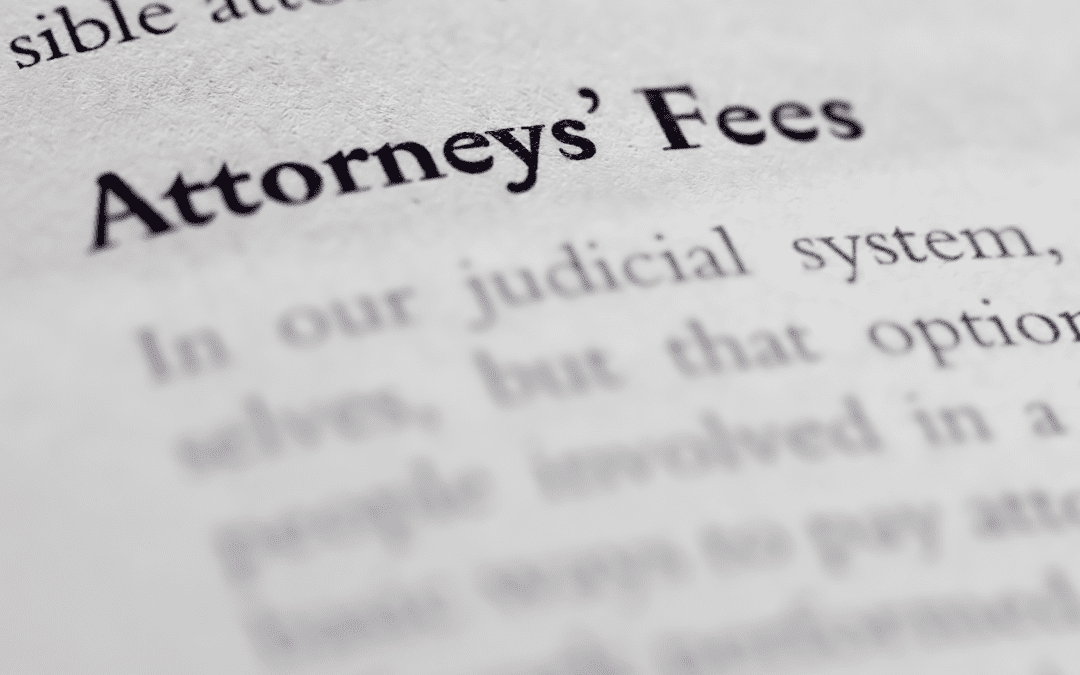The general rule in the United States, which is known as the “American Rule,” is that each party to a legal dispute is required to pay their own legal fees. In contrast, the “English Rule” provides that the loser pays the other side’s legal fees, which can be a deterrent against bringing a lawsuit, especially for people with limited financial means. Despite the prevalence of the American Rule in the U.S., certain laws provide exceptions allowing for the recovery of attorney’s fees by the winning party. This article explores one such exception, focusing on recovering attorney fees under ERISA (Employee Retirement Income Security Act).
Despite the prevalence in the U.S. of the American Rule, Congress and legislatures have created fee-shifting laws that permit winning plaintiffs in legal disputes to collect fees. Fee-shifting is especially common in laws protecting civil rights; and are intended to encourage aggrieved individuals to pursue claims involving deprivation of rights, such as cases involving discrimination in employment. Congress has also passed legislation known as the Equal Access to Justice Act that permits individuals who have legal disputes with the U.S. government to collect fees if they are successful in court and can establish the government’s position was not substantially justified.
When Congress passed the Employee Retirement Income Security Act (ERISA) in 1974, a fee-shifting provision, § 502(g) (29 U.S.C. § 1132(g) was included in the law to permit winning claimants to seek to recover fees in benefit denial cases, breaches of ERISA fiduciary duties, and actions brought to vindicate rights under ERISA. The decision to award fees in such cases is left to the discretion of the court, so fee awards are not automatic. Moreover, fee awards are also available to defendants, although successful defendants can collect fees against plaintiffs only if the action is deemed frivolous or brought in bad faith.
Under What Circumstances in ERISA Can Attorney Fees Be Awarded?
Fee awards are only available for success in court. Several federal courts of appeals have ruled that there is no entitlement to fees when claimants successfully appeal claim denials under ERISA provisions that have established claimants’ rights to a full and fair review of a claim denial prior to litigating the matter. Although most courts have deemed pre-litigation appeals mandatory and a pre-condition to being allowed to proceed with a lawsuit, fees are not recoverable unless litigation has been commenced.
Eligibility and Assessment of Attorney Fees under ERISA
If a claimant is successful in court, though, they have the right to seek fees. One of the oddities of ERISA litigation is that even if courts overturn claim denials, they often do not then issue an outright award of benefits. In many instances, courts will remand the matter back to the insurance company or benefit plan administrator that denied the claim with instructions to reconsider the denial based on the court’s findings.
Prior to the issuance of Hardt v. Reliance Standard by the Supreme Court in 2010, many courts had denied fee awards if the claimant had secured a remand on the ground that fees are available only to prevailing parties, and that securing a remand is not the equivalent of prevailing party status. However, Hardt found the ERISA statute lacked a prevailing party requirement and ruled that either party was eligible to seek fees so long as they achieved “some degree of success on the merits” of the claim. Subsequent lower court rulings have clarified that a remand meets that standard and opens the door to a potential fee award.
The Supreme Court added in Hardt that fees may be awarded purely on the achievement of some degree of success. However, the Court permitted lower courts to consider other factors in deciding whether to award fees. Those factors include:
- The conduct of the parties both prior to and during the litigation
- The relative merits of each party’s position
- The relative financial resources of the parties
- Whether an award of attorneys’ fees would deter similar conduct in the future
The court may apply such factors in deciding whether to award fees. Since courts have discretion to award fees, challenging a fee denial requires a showing of abuse of discretion, an exceptionally high bar to meet.
In setting fees, courts typically set the fees by applying what is known as a lodestar – the court determines whether the services claimed and the time the attorney has claimed with respect to those services are reasonable and then determines a reasonable hourly rate for the attorney’s services. Thus, courts may award fees but considerably reduce the amount of fees claimed.
Fee awards to not have to be proportionate to the recovery, though. In the case of Anderson v. AB Sandblasting, Inc., the U.S. Court of Appeals for the Seventh Circuit determined that claimants’ rights under ERISA are so significant that the purpose of fee awards under the ERISA statute is to redress “petty tyranny” and therefore justifies a fee award that may be disproportionate to the amount of benefits recovered.
ERISA Fee Award Implications and Significance
The availability of fee awards under ERISA serves a valuable purpose – it fulfills ERISA’s goal of making employers keep the promises they made to their employees concerning their benefits. Fee awards provide a deterrent against bad faith claim handling and encourage claimants to vindicate rights that have been denied. Most courts have taken the position that there is a “modest presumption” in favor of an award of fees to a prevailing plaintiff, and fee awards are therefore common following a claimant’s success in litigation, although not guaranteed.
The possibility of recovering fees also incentivizes attorneys to take on the challenge of fighting large insurance companies and major businesses that have abridged the rights of employees and their beneficiaries. Without the possibility of an award of attorneys’ fees, attorneys may be reluctant to take on a wide swath of cases such as health insurance disputes where any payment recovered would go directly to the healthcare provider, or other situations where there may not be a financial recovery.
Experienced ERISA attorneys, such as the lawyers at DeBofsky Law, Ltd., recognize the importance of the availability of fee awards and how attorneys’ fee claims are an integral part of ERISA litigation. Attorneys’ fee awards permit us to maximize our clients’ recoveries in ERISA litigation and help to fully vindicate our clients’ rights.







